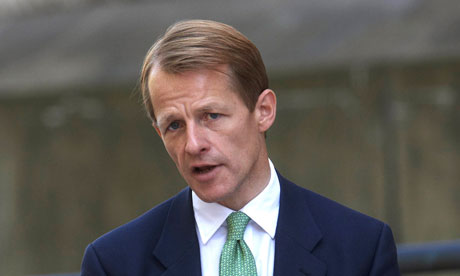
–
The way British governments set budgets and tweak spending plans is a recipe for bad, short-termist decision making
Forget tax credits for a moment. Forget Right-To-Buy, stamp duty, beer duty and the tampon tax. MPs may still be debating George Osborne’s 2015 Autumn Statement, but step back for a moment and look at the broader picture.
Twice a year – once in the annual Budget and once in the Autumn Statement – the Chancellor of the Exchequer gets to his feet and delivers a refreshed set of economic policies in a big, set piece speech where he is essentially forced to favour tomorrow’s headlines over optimal long or even medium term decision making.
Nationally significant policies from every government ministry live or die by the concessions that their ministers are able to wrangle from a Chancellor who is forced by political reality to be more concerned with tomorrow’s Daily Mail headline than the state of our public finances in a year’s time.
Spending decisions are made based on economic forecasts which are sunnier than a warm day on Venus. Questionable political decisions are defended to the hilt, because to question them in light of new data would be to commit the gravest of self-inflicted political wounds, the U-turn. The government of the day rolls out a “smoke and mirrors” act worthy of David Blaine, and all to glam up the fact that they have slightly re-arranged the deckchairs on the Titanic.
And for what? To draw the public in to the political process? To high-mindedly arbitrate complex questions of economic policy? To astutely position Britain vis-à-vis our global competitors, ensuring that our tax code, infrastructure and labour market are the most attractive in the world?
No. We do it just so that the government of the day – or a nimble opposition (remember those?) – can score political points. And, of course, because it is traditional.
Some traditions – like MPs not clapping in the Commons chamber – are antiquated and affected, but do little real damage. Others – like MPs having to leave the Commons chamber through a specific door in order to vote, rather than availing themselves of fast electronic voting technology – are an irritant, a brake on the smooth running of our legislature.
But some traditions belong in another category – things that do real, actual harm, not just to the running of our Parliament but to the political outcomes which we then have to live with every day. Some traditions actively harm our democracy.
I would submit that the Budget and Autumn State set-piece theatre events fall into this latter category. Politically astute chancellors (like George Osborne on a good day) may relish them because they provide an unparalleled opportunity to draw red lines and create traps for the opposition. The Westminster media may like the status quo, because if nothing else, these events can be moments of real political drama.

But besides savvy chancellors and the established media, it is hard to tell who else benefits from the current system other than the cause of Big Government.
Having two occasions each year when an already-powerful chancellor like George Osborne in an already-centralised country like the United Kingdom gets to play with nearly all of the controls and levers which influence our economy – as though he were Homer Simpson at the controls of Springfield Nuclear Plant – only encourages meddling and tweaking of things that should properly be left to local government and individuals.
When you have direct, ultimate control over which families deserve help buying a house, which people should keep or lose their benefits or how much a person pays in sin taxes for their guilty pleasure, the temptation to use those powers is irresistible. And because of the ratchet effect, it is the easiest thing in the world to give away new perks to favoured interest groups, but nearly impossible to ever claw them back without being exposed to political attack. Even under this nominally conservative government, budgets and autumn statements have often been a one-way ticket to bigger government – or at least more activist state.
No system is perfect. One needs only look across the Atlantic ocean at the United States, with their unseemly debt ceiling fights and government shutdowns (oh, to have one here) to realise that you do not need a Westminster parliamentary-style system to sow budget chaos. But the flaws in our current system are obvious, and have been staring us in the face for years – yet nobody has proposed the slightest alteration, choosing instead to cheer when their side “wins” and whine when the other side is in power and sets a budget with which we disagree.
People did not elect a Conservative government only to have George Osborne sit at the control console of their lives, Homer Simpson-like, flicking switches and adjusting dials here and there in order to manipulate our mood so that we vote Tory again in 2020. If conservatism still means anything, it should mean a healthy scepticism of the state and its power to influence or police human behaviour.
Surely at some point our desire for smaller government and a smarter state has to outweigh our devotion to the dusty tradition of a man standing on the doorstep of his house, waving a red box around.

–
Agree with this article? Violently disagree? Scroll down to leave a comment.
Follow Semi-Partisan Politics on Twitter, Facebook and Medium.




